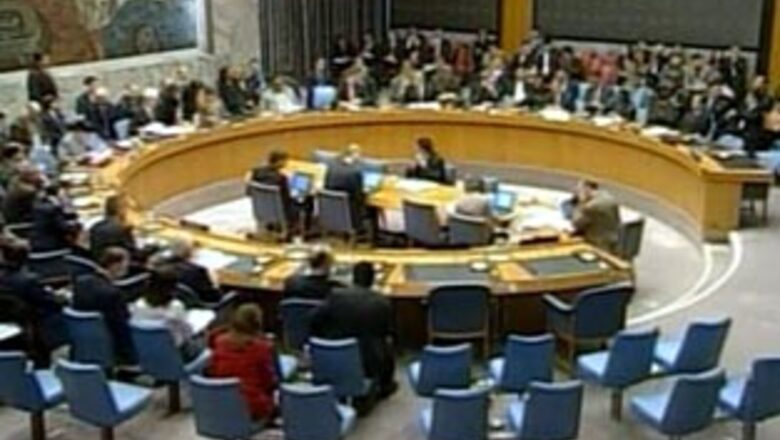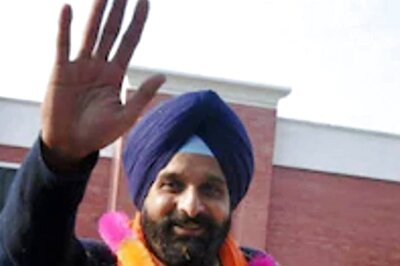
views
New York: The UN Security Council on Thursday unanimously adopted a resolution that allows the global body to address nuclear threats and adopts measures curbing the export of nuclear materials.
The 15-nation council adopted the resolution pushed forward by the US to open its one-day meeting on nuclear disarmament. US President Barack Obama called for the vote immediately after he opened the meeting. Obama led the meeting because the United States holds the revolving presidency of the Security Council in September.
Obama said, though, that the resolution was not about singling out nations, but about ensuring that international agreements have real-world heft.
"International law is not an empty promise, and treaties must be enforced," Obama said.
President Obama challenged the gathering to overcome cynicism against the goal of ridding the world of nuclear arms. He quoted president Reagan, saying "a nuclear war can never be won and must never be fought".
"The world must stand together," Obama said. "We must demonstrate that international law is not an empty promise."
The resolution supports and strengthens the role of the International Atomic Energy Agency (IAEA) in carrying out its duties of monitoring nuclear plants and nuclear fuel and minimising the risk of nuclear proliferation worldwide.
The resolution called on countries to sign and ratify, if they have not yet done so, the Nuclear Non-Proliferation Treaty (NPT) and the Comprehensive Test Ban Treaty (CTBT). While NPT is in already in effect, CTBT is not.
It reaffirmed the alienable rights of countries to possess nuclear energy for peaceful purposes "without discrimination". It would allow supplier states to demand the return of nuclear material and equipment if the receiving states are found in non-compliance with IAEA safeguard regulations.
"We harbour no illusions about the difficulty of bringing about a world without nuclear weapons," Obama said. "We know there are plenty of cynics, and that there will be setbacks to prove their point. But there will also be days like today to push us forward - days that tell a different story."
The US has signed the test ban treaty but has not ratified it. Obama pledged to bring the US up to date with that treaty.
UN Secretary General Ban Ki-moon praised the US and Russia for leading nuclear disarmament by example.
"Nuclear disarmament is the only sane path to a safer world," he said.
"I urge the Security Council to make the most of this moment," he told the council meeting filled with celebrities, including former US secretary of state Henry Kissinger and actor Michael Douglas, who is a UN messenger of peace on disarmament.
"It should not be a one-time event," Ban said. "We must sustain the momentum."
In addition to Obama, Presidents Hu Jintao of China, Nicholas Sarkozy of France and Dmitri Medvedev of Russia and British Prime Minister Gordon Brown attended the meet. Those five countries are permanent members with veto power in the 15-nation Security Council.
"It's obvious that an effective solution ... depends on the constructive engagement of all parties," Medvedev said at the meet, adding that he expected the Russia-US leadership on the issue to be backed by "all nuclear powers".
On Wednesday, Medvedev signalled he could support sanctions against Iran over its efforts to develop a nuclear weapon.
"Russia's position is clear: sanctions rarely lead to productive results, but in some cases sanctions are inevitable," Medvedev said in a joint appearance with Obama after they met in New York.
The statement bolsters US-led efforts for increased international pressure on Iran to adhere to non-proliferation agreements in pursuing the development of nuclear energy.
Iran claims its nuclear programme is intended for peaceful purposes, but the international community accuses it of continuing to try to develop nuclear weapons capability.
The 10 council members elected for two-year terms were also represented by their presidents and prime ministers. They included Japanese Prime Minister Yukio Hatoyama, Libyan leader Muammer Gaddafi, Ugandan President Yoweri Museveni, Mexican President Felipe Calderon, Vietnamese President Nguyen Minh Triet and Turkish Prime Minister Recep Tayyip Erdogan.



















Comments
0 comment